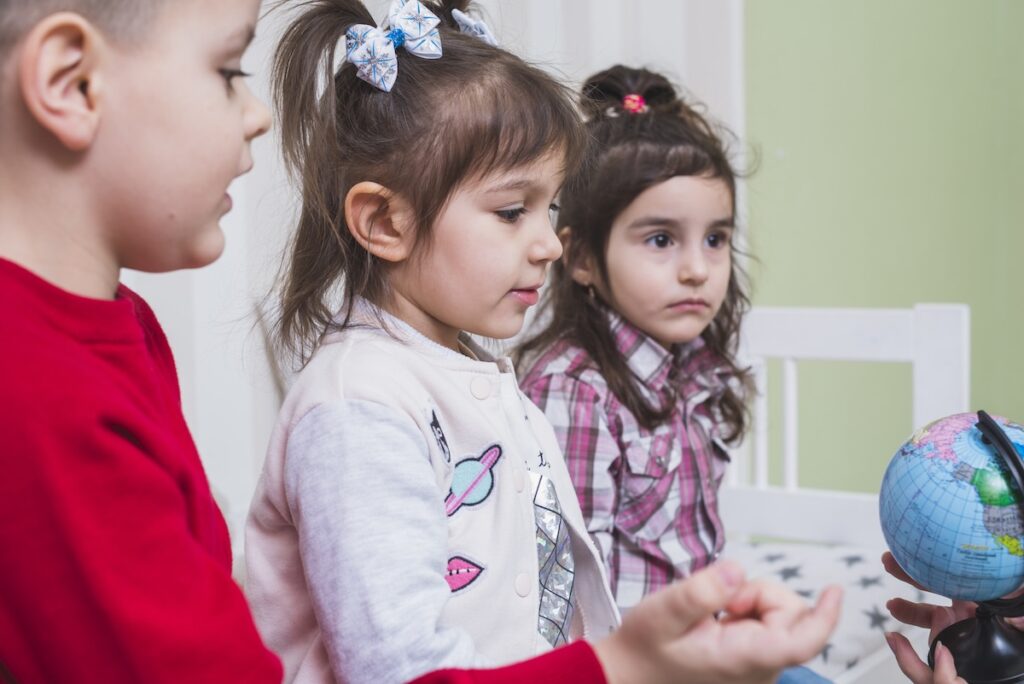Онлайн-школа » Блог
Блог

Сленг поколения Альфа: что говорят самые молодые дети и подростки
Поколение Альфа — это наши сегодняшние школьники и дошкольники, рожденные примерно с 2010 года. Представьте, что эти ребята никогда не видели мира без смартфонов. Для

Почему школы запрещают телефоны на уроках
Все больше учебных заведений в США и других странах перестают разрешать использовать гаджеты в школе во время занятий. Ребенок может взять смартфон с собой, но

Международная волонтерская программа «Послы русского языка в мире»
Представьте: группа молодых россиян приезжает в школу в Перу, Кубу или Армению — и за неделю превращает скучные уроки русского в настоящий праздник. Дети учат

Активный ребенок: как помочь ребенку не выгореть
Ваш ребенок ходит на футбол, рисование, английский, танцы и шахматы? Учится только на пятерки и при этом участвует во всех школьных мероприятиях? С одной стороны

Детский тайм-менеджмент: как научить ребенка самостоятельно планировать своё время и всё успевать
Будильник звонит уже в третий раз, ребенок никак не может собраться, завтрак остывает, а вы нервничаете, потому что опаздываете на работу. Знакомая картина? Многие родители

Виталий Костомаров – лингвист, научивший весь мир русскому языку
Представьте: вы приехали в Россию и хотите заговорить по-русски. Вас сажают за парту и дают толстенный учебник. Страницы, исписанные непонятными правилами. Таблицы падежей, которые путаются

5 популярных мифов о Пушкине
Александр Сергеевич Пушкин — поэт, которого знают все. Его стихи мы учим с детства, его имя слышим постоянно. Но чем больше рассказывают о Пушкине, тем

Китайский Новый год: что это за праздник и как его отмечают
Китайский Новый год — главный из всех праздников Китая. Для китайцев это не просто повод повеселиться, а особый день, когда жизнь словно обновляется. В отличие

17 февраля — День спонтанного проявления доброты
17 февраля во многих странах отмечается особенный праздник — День спонтанного проявления доброты. В отличие от других дат, он требует только искреннего желания сделать чей-то

Как мы учим детей писать прописью в онлайн-формате
Многие родители задаются вопросом: зачем учить ребенка писать прописью, если будущее за клавиатурами и сенсорными экранами? Ответ прост: письмо от руки у детей напрямую связано

Позитивная критика ребенка: как правильно давать обратную связь
Многие родители думают, что критика детей — это всегда плохо. От этого у ребенка падает самооценка и мотивация, что-либо делать. Но так ли опасна критика

Что такое социальный интеллект и почему его развитие важно для личностного роста ребенка
А вы знали, как важен для будущего ребенка социальный интеллект? Но что это такое? И как его развить? Что такое социальный интеллект Социальный интеллект —

Как объяснить ребенку День Святого Валентина: история, традиции и символика праздника
История Дня Святого Валентина начинается в Древнем Риме, в III веке. Святой Валентин был христианским священником в городе Терни. В те времена император Клавдий II

Финансовая грамотность становится частью школьной программы
Раньше в школе просто учили математике, но не объясняли, как расплачиваться по счетам или накопить на крупную покупку. Сегодня финансовая грамотность в школе уже стала

Как помочь ребенку справиться с усталостью и восстановить силы
Многие родители думают, откуда может взяться усталость у ребенка? Он же спит много, на работу не ходит и ответственности у него нет. Однако усталость у

Академическая свобода и преподавание без идеологии
Все чаще в мире звучит такой термин как «Академическая свобода». Но что это такое? И как она влияет на наших детей? Что такое «Академическая свобода»

5 ошибок при обучении детей чтению и как их избежать
Многие родители сталкиваются с трудностями в обучении детей чтению, не понимая причин. Чаще всего сложности возникают из-за завышенных ожиданий. Желание научить ребенка читать к трем

Раннее развитие ребёнка: что включает в себя это понятие
Что такое раннее развитие в его здоровом проявлении? Раннее развитие не означает «раннее обучение детей» в академическом смысле. До трех лет мозг ребенка устроен иначе,

Сколько должен спать ребёнок: нормы сна по возрасту
Качественный сон — это фундамент здоровья и развития ребенка. При этом многие родители не до конца понимают, сколько часов отдыха действительно нужно их малышу. Современные

Что делать, если ребёнок нецензурно выражается
Когда ребенок впервые произносит нецензурное слово, у многих родителей возникает смешанная реакция: шок, растерянность, а иногда и непроизвольный смех. Однако важно понимать, что детская речь

Как быстро расширить словарный запас: 3 приёма из наших уроков
На наших уроках мы постоянно работаем над расширением словарного запаса учеников, чтобы дети не использовали одни и те же фразы и могли свободно выражать свои

